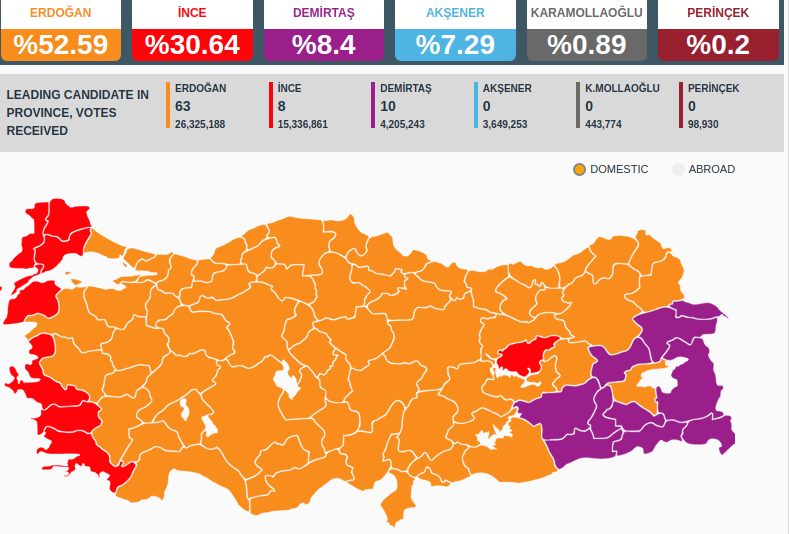One reason may be due to the demographics of the Tunceli region, which includes significant populations of Dersim Alevi Kurds, Armenian Alevis and Christian Armenians. Tunceli is the only region in Turkey with a majority population of Alevi.
The beliefs of the Dersim Alevi Kurds more closely align with that of Zoroastrianism than Islam, and along with Kurdish and Christian identities, they may view Erdogan's move away from Ataturk's secular nationalism to that of socially conservative Islamism unappealing. Also, ethnic Armenians will also only be too aware of the Armenian genocide in recent history.
Being both Alevi and Kurdish, they may face particular prejudice for being neither ethnically Turkish nor following the branch of Sunni Islam, as is practiced as a majority religion in Turkey.
The Kurdish naming conventions of towns and cities in the region have been historically repressed and erased, in particular after the Dersim rebellion to replace them with more Turkish names. The original Kurdish name, Dersim, was replaced by the Turkish Tunceli. In 2013, Erdogan's government promised to review the naming process for the region, with a view to renaming it with the Kurdish name. However, as of today, this hasn't progressed, and the Kurds in the region may view this promise as insincere.
A vote against Erdogan may be seen as a chance for these minorities to retain and reassert their identities in the region, in the form of the expression of language, culture and naming conventions for towns and cities. The mountain range which passes through the Tunceli region is also considered particularly sacred by those who practice Alevism, hence the significance of the area.
Tunceli also has one of the highest literacy rates amongst Turkey's provinces, was deemed to have the highest education index from a study by the Turkish Statistical Institute, however Tunceli also came lowest in the life satisfaction index in the same study.
Some links:
